Buy Cinnatropin 30 IU / 10 MG CinnaGen Online
From $109.00
Cinnatropin pen containing 30 IU of pharmaceutical-grade human growth hormone, accompanied by 10 disposable needles.
Overview:
Cinnatropin 10 mg/1.5 ml is a recombinant human growth hormone (rhGH) used primarily for the treatment of growth hormone deficiencies (GHD) in both children and adults. The active ingredient, Somatropin, is a bioengineered version of the naturally occurring growth hormone produced by the pituitary gland, vital for growth, cell reproduction, and regeneration. Cinnatropin is manufactured using advanced recombinant DNA technology, ensuring a high degree of purity and bioactivity, making it effective for a range of medical conditions associated with growth hormone deficiency.
This product is supplied as a sterile solution for subcutaneous or intramuscular injection and comes in a vial containing 10 mg of Somatropin (approximately 30 IU) per 1.5 ml. The ready-to-use format offers patients ease of administration, improving compliance and reducing preparation time.
Composition:
- Active ingredient: Somatropin (recombinant human growth hormone) 10 mg/1.5 ml (approx. 30 IU)
- Excipients: Sodium chloride, water for injection, stabilizers, and preservatives to ensure sterility and efficacy
Mechanism of Action:
Cinnatropin mimics the activity of natural human growth hormone. It binds to the growth hormone receptor (GHR) on target cells, initiating intracellular signaling pathways that promote growth and development. The hormone plays a key role in stimulating skeletal growth, increasing the size and number of muscle cells, and regulating metabolism by promoting protein synthesis and reducing fat accumulation. It also enhances the production of insulin-like growth factor 1 (IGF-1) in the liver, which contributes to bone growth, muscle development, and overall tissue repair.
Indications:
Cinnatropin is prescribed for a variety of conditions, including but not limited to:
- Growth Hormone Deficiency (GHD) in Children:
- Children with inadequate endogenous growth hormone production leading to stunted growth.
- Cinnatropin helps these patients achieve a near-normal height by promoting bone growth, increasing muscle mass, and reducing body fat.
- Growth Hormone Deficiency in Adults:
- Adults with GHD, often due to pituitary gland damage, require exogenous growth hormone to maintain normal physiological functions, including muscle strength, bone density, and metabolism.
- Turner Syndrome:
- A genetic disorder in females characterized by short stature and lack of ovarian development. Growth hormone therapy can help increase height in these patients.
- Chronic Renal Insufficiency:
- Growth failure in children with chronic renal insufficiency. Somatropin assists in improving linear growth in these patients.
- HIV-Associated Wasting or Cachexia:
- Cinnatropin helps to counteract severe muscle wasting and fat loss in patients with HIV, improving lean body mass and overall health.
- Short Bowel Syndrome:
- Somatropin is used in conjunction with specialized nutritional support to improve the absorption of nutrients in patients with short bowel syndrome.
Dosage and Administration:
The dosage of Cinnatropin is individualized based on the patient’s weight, age, and medical condition. Treatment should be supervised by a healthcare professional experienced in growth hormone therapy.
- Children with GHD: The typical dosage is 0.025 to 0.035 mg/kg of body weight per day. The injection is administered subcutaneously, and the site of injection should be rotated to avoid lipoatrophy.
- Adults with GHD: An initial dose of 0.15-0.3 mg/day is recommended, which may be gradually increased based on the patient’s tolerance and clinical response. The maintenance dose varies, generally in the range of 0.15-0.75 mg/day.
- Turner Syndrome, Chronic Renal Insufficiency, and Short Bowel Syndrome: Dosages are tailored to the specific needs of the patient based on their condition and clinical evaluation.
Administration Instructions:
Cinnatropin is typically self-administered by the patient after proper training. It is injected subcutaneously or intramuscularly, and the patient or caregiver should be instructed on the correct handling of the syringe, needle, and vials to ensure sterility and safety.
- Storage: Store Cinnatropin in a refrigerator between 2°C to 8°C (36°F to 46°F) until use. Once removed from refrigeration, the vial can be kept at room temperature for up to 4 weeks, but should not be exposed to extreme heat or direct sunlight.
Contraindications:
Cinnatropin is contraindicated in the following conditions:
- Active Malignancy: Growth hormone therapy may promote the growth of pre-existing tumors.
- Acute Critical Illness: Patients recovering from major surgeries, trauma, or those with acute respiratory failure should not be treated with growth hormone due to an increased risk of mortality.
- Hypersensitivity to Somatropin: Patients who have exhibited allergic reactions to any component of Cinnatropin should avoid this medication.
Warnings and Precautions:
- Diabetes Mellitus: Growth hormone therapy can affect glucose metabolism, potentially leading to insulin resistance or exacerbating existing diabetes. Blood glucose levels should be monitored regularly in patients with diabetes or prediabetes.
- Intracranial Hypertension: Rare cases of intracranial hypertension (increased pressure within the skull) have been reported, particularly during the initial weeks of treatment. Patients should be monitored for symptoms such as headaches, visual disturbances, and nausea.
- Hypothyroidism: Growth hormone therapy may unmask previously undiagnosed hypothyroidism. Thyroid function should be monitored, and thyroid hormone replacement should be administered if necessary.
- Scoliosis: Rapid growth in children can exacerbate existing scoliosis. Regular monitoring of spinal health is advised.
Adverse Effects:
While Cinnatropin is generally well-tolerated, some patients may experience side effects. Common side effects include:
- Injection Site Reactions: Pain, redness, or swelling at the injection site is common but typically resolves with time.
- Fluid Retention: Swelling in the hands or feet due to fluid retention may occur, especially in adults.
- Joint and Muscle Pain: Some patients may experience joint stiffness or muscle pain, particularly during the early stages of treatment.
- Carpal Tunnel Syndrome: In rare cases, patients may develop carpal tunnel syndrome, characterized by numbness, tingling, or pain in the hands.
- Metabolic Changes: Increases in blood sugar levels, changes in cholesterol levels, or alterations in lipid metabolism have been reported.
Drug Interactions:
Certain medications may interact with Cinnatropin, potentially affecting its efficacy or safety. Key interactions include:
- Glucocorticoids: High doses of glucocorticoids can counteract the growth-promoting effects of Somatropin. Dose adjustments may be required if patients are on long-term steroid therapy.
- Antidiabetic Medications: Growth hormone can alter glucose metabolism, requiring adjustments in the dosages of insulin or oral hypoglycemic agents in diabetic patients.
- Thyroid Hormone Replacement Therapy: Patients receiving both growth hormone and thyroid hormone replacement may need to adjust the dose of one or both medications to optimize treatment outcomes.
Monitoring:
Patients on Cinnatropin should undergo regular monitoring, which includes:
- Growth Rate (in children): Height and weight should be measured regularly to assess the effectiveness of the treatment.
- IGF-1 Levels: Blood levels of IGF-1 should be checked to ensure the appropriate dose of Somatropin is being administered.
- Blood Glucose and Lipid Profiles: Regular monitoring is recommended to detect any changes in glucose tolerance or lipid metabolism, particularly in adults.
Patient Counseling Information:
Patients and caregivers should be provided with clear instructions on the proper storage, preparation, and administration of Cinnatropin. It is essential to rotate injection sites to avoid tissue damage, and patients should report any unusual symptoms, such as persistent headaches or joint pain, to their healthcare provider immediately.
Conclusion:
Cinnatropin 10 mg/1.5 ml is a highly effective growth hormone therapy designed to address a range of medical conditions associated with growth hormone deficiency. With its proven efficacy and safety profile, it offers patients an opportunity to improve growth outcomes, metabolic function, and overall well-being. Regular monitoring and adherence to prescribed dosages are crucial to ensure optimal results and minimize the risk of side effects. As with all medications, Cinnatropin should be used under the supervision of a qualified healthcare professional, ensuring personalized care tailored to each patient’s unique needs.
| Quantity | 1 Kit, 5 Kits |
|---|


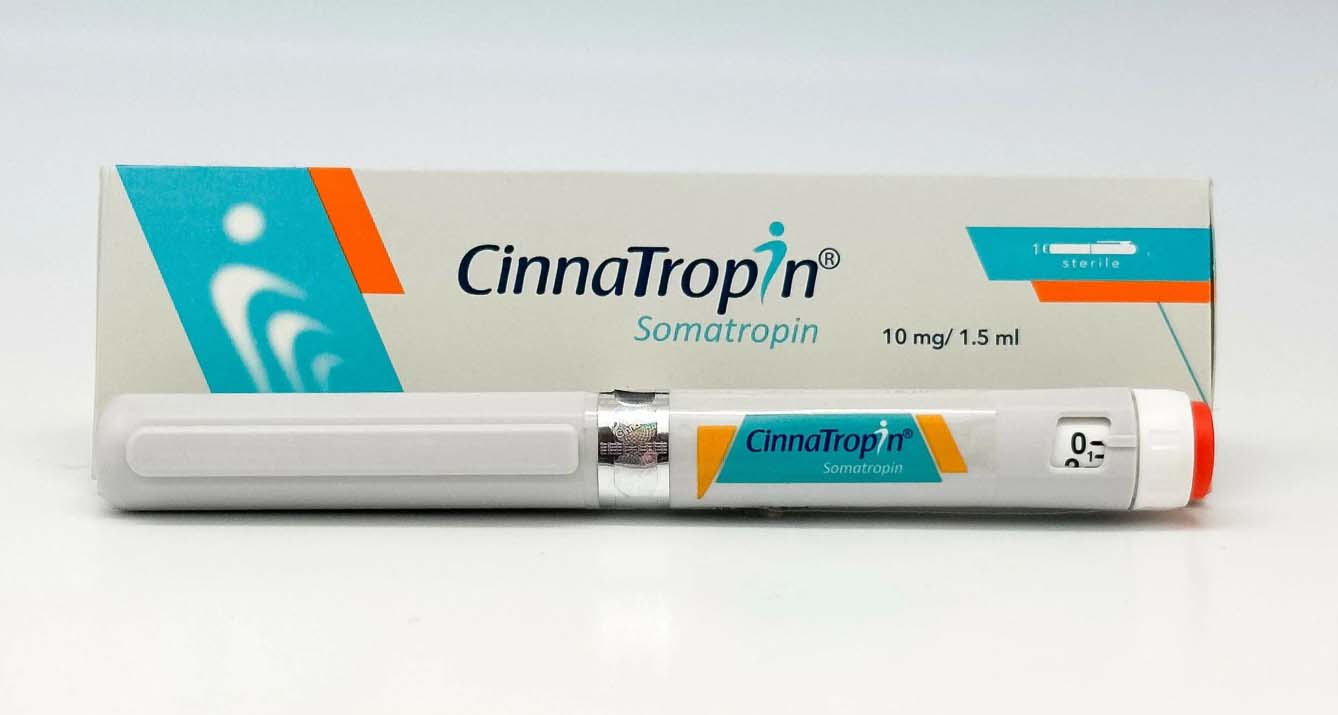
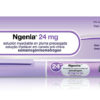
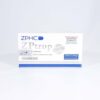
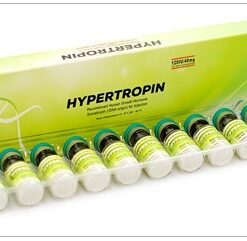
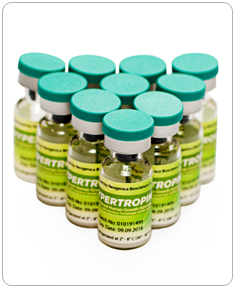
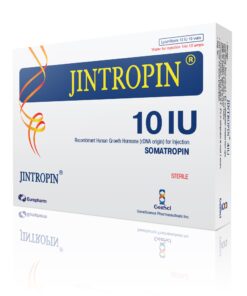
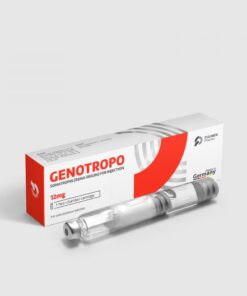
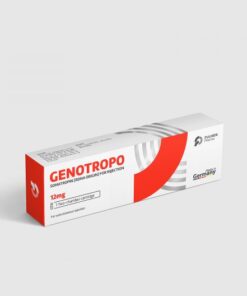
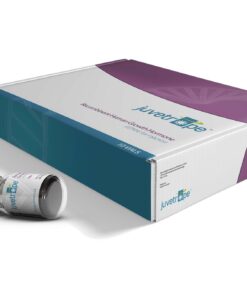
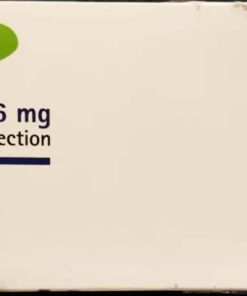
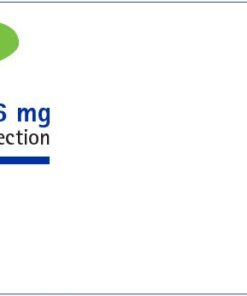
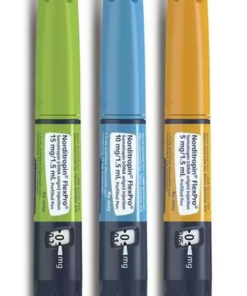
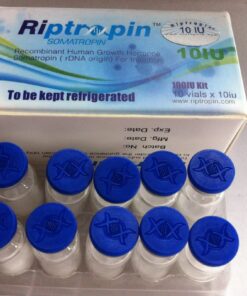
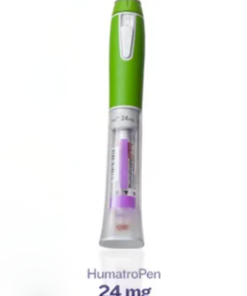
Rebecca Collins –
I’ve tried several HGH pens, but Cinnatropin stands out for reliability and convenience. The 30 IU format is ideal, and the 10mg strength feels potent without any unwanted side effects. Sleep quality, recovery, and overall vitality have all noticeably improved. The build of the pen is sturdy, and the injections are smooth with the provided needles. Highly recommended for anyone wanting pharmaceutical-grade convenience.
Daniel Ford –
Cinnatropin delivers exactly what you expect from top-shelf HGH. The purity is evident—my joints feel better, my mood is more stable, and my body composition has improved slowly but steadily. The 10 disposable needles included are sharp and painless, which makes the whole experience comfortable. This pen has become part of my nightly routine, and the results speak for themselves.
LC_WellnessJourney –
I appreciate how beginner-friendly the Cinnatropin pen is. Having 30 IU preloaded and ready to go saves so much time, and the dosage clicks feel precise. Recovery from training has improved significantly, and I’ve noticed improved skin texture and morning alertness. It’s rare to find an HGH pen that’s this consistent and easy to use.
MikeR_PerformanceLab –
Cinnatropin has been one of the easiest HGH products I’ve ever used. The 10mg/1.5ml pen is smooth, accurate, and extremely convenient—no mixing, no hassle. Within a couple of weeks, I noticed deeper sleep, better recovery, and a subtle boost in daily energy. The 30 IU dose feels perfectly calibrated, and the included disposable needles make everything even more effortless. Absolutely pharmaceutical-grade quality.
JM_ActiveLifestyle –
I’ve been using Cinnatropin for a couple of months, and the benefits have been outstanding. My skin looks healthier, my body feels stronger, and I wake up feeling refreshed. It’s easy to prepare, mixes clearly, and has no negative effects. You can tell it’s a legitimate pharmaceutical-grade product. I’m extremely satisfied with the consistency and overall improvement in my well-being.
Laura Simmons –
After switching to Cinnatropin, I could immediately tell it was a clean and authentic product. My recovery from workouts has improved drastically, and I’m sleeping better than I have in years. My energy levels are steady all day long, and I’ve started seeing visible results in my muscle definition. It’s definitely a premium HGH I can rely on.
Daniel Cooper –
Cinnatropin has been one of the most effective HGH products I’ve ever used. Within a few weeks, I noticed improved muscle tone, faster recovery, and deeper sleep. The quality feels pharmaceutical-grade — smooth mixing, no irritation, and very consistent results. I’ve gained lean muscle and overall feel much more energetic and focused throughout the day.
Daniel Brooks –
Cinnatropin delivers exactly what it promises. I’ve seen visible improvements in muscle tone, skin quality, and overall vitality. Highly recommend!
Jessica Cole –
After starting Cinnatropin, I felt a huge difference in my daily energy and motivation. My body feels stronger, and my mental focus is sharper than before. The delivery was very fast, and the package was discreet — excellent service and top-quality product.
Michael Rivera –
Cinnatropin has been incredible for my overall health and performance. Within a few weeks, I noticed better recovery after workouts, more energy during the day, and improved sleep at night. The delivery was fast, and the packaging was discreet and professional.
Rachel D. –
I’ve tried several brands, and Cinnatropin pen is by far the easiest and most consistent. My recovery time has shortened, and I’m gaining lean muscle steadily.
Jonathan K. –
This is my favorite HGH pen so far. Cinnatropin is smooth, effective, and delivers real results. My muscle definition has improved, and I feel stronger every day.
BodyFuel88 –
Cinnatropin delivers on every level. The pen makes dosing effortless, and the effects are clear — faster recovery, more energy, and improved overall tone. Highly recommended.
Mark W. –
I absolutely love how simple the Cinnatropin pen is to use. Within a few weeks, I started noticing leaner muscle and better energy levels. It’s a must-have for anyone serious about training.
Sophie L. –
The Cinnatropin pen is super convenient and effective. It’s easy to use, and I’ve seen a real improvement in muscle tone and recovery speed. The results are clean and consistent.
Basshead –
At 45, I started using the Cinnatropin 30 IU Pen with a focus on longevity and overall wellness—and the results have been fantastic. My sleep is deeper, recovery is faster, and everyday energy feels like it did a decade ago. Joint discomfort has eased, and even small things like mental sharpness and skin quality have noticeably improved. The preloaded pen makes it easy to stay consistent. If you’re over 40 and serious about aging well, this is a smart investment in your long-term health.
Chromer –
As someone new to HGH, I was a bit hesitant—but the Cinnatropin 30 IU Pen made everything easy. The pen design took away the guesswork and made daily dosing feel simple and safe. Within the first few weeks, I noticed better sleep, smoother recovery after workouts, and even a more refreshed look in the mirror. No side effects, no complications—just steady, noticeable improvements. Highly recommended for anyone starting their HGH journey.
F.A.R.M. –
Cinnatropin 30 IU Pen impressed me from the start. The pen format is incredibly user-friendly—no mixing, no mess, just accurate dosing every time. I’ve experienced steady improvements in body composition, better sleep, and enhanced recovery. My training intensity is up, and overall energy levels feel more stable throughout the day. This is a legit, pharmaceutical-grade HGH product that delivers professional results with minimal hassle.
DeanoG –
After dealing with a nagging shoulder strain, I added the Cinnatropin 30 IU Pen to my routine—and the difference was noticeable. Recovery times shortened dramatically, inflammation decreased, and I was able to get back to full training quicker than expected. On top of that, my strength and stamina improved, and I felt more resilient during high-intensity workouts. The pen makes dosing simple, and the quality is definitely top-tier.
Rameet –
Cinnatropin 30 IU Pen has made a clear difference in my cutting phase. I started seeing fat come off stubborn areas without sacrificing muscle tone. My midsection became tighter, and vascularity improved within just a few weeks. I used 3–4 IU daily alongside fasted cardio, and the results were consistent and noticeable. The pen is super convenient—no mixing or measuring. This HGH is a reliable choice for anyone dialing in their physique.
Henry Hicks –
After a few weeks of using the Cinnatropin 30 IU Pen, I started seeing real changes—clearer skin, deeper sleep, and improved mood throughout the day. My energy levels are steadier, and my recovery after workouts feels like it did years ago. The convenience of the preloaded pen makes it easy to stay on track. For anyone looking to feel younger and improve daily wellness, this product is a standout.
Susitna Craft –
The cinnatropin 30 IU Pen is by far one of the most convenient HGH products I’ve used. The preloaded pen system makes dosing simple and accurate—great for staying consistent. I noticed improved sleep, faster recovery from training, and a leaner, more defined look within weeks. My energy levels are up, and I feel sharper mentally too. No side effects, and it feels like a pharmaceutical-grade product. Perfect for anyone wanting dependable HGH in an easy delivery system.
Jose –
As someone in my 50s, the Cinnatropin Pen has been a fantastic addition to my wellness routine. Within a few weeks, I experienced better sleep, more energy during the day, and less joint stiffness. The pen is simple to use, with no mixing or complicated steps. It’s helped me feel younger, more active, and overall healthier. Highly recommend for anyone looking to age gracefully and stay sharp.
lilymoon –
Cinnatropin Pen has been incredibly effective—noticed leaner muscle tone, deeper sleep, and quicker recovery within weeks. The pen is easy to use with precise dosing and no waste. Smooth, reliable HGH that delivers exactly what it promises.
Cami –
Cinnatropin Pen makes HGH use incredibly easy. The preloaded pen is hassle-free, and results came fast—better energy, fat loss, and overall well-being. Injections are painless, and the quality is consistently excellent. A great option for anyone serious about results without the mess.
Ramon Alc –
Excellent for Daily Use and Results
Survival Gal –
Smooth, Simple, and Effective
Ashtin calkum –
The Cinnatropin Pen is one of the most convenient and reliable HGH products I’ve used. The pen delivery system makes dosing quick and precise—perfect for daily use. Within a few weeks, I noticed better recovery, improved sleep, and leaner muscle definition. No side effects, and the quality feels pharmaceutical-grade. Highly recommend for anyone seeking a user-friendly and effective HGH option!
joel wiechert –
Cinnatropin delivers exactly what it promises. Easy to use, fast-acting, and great results in terms of recovery and overall wellness. Will definitely keep using it!
SunBird –
Great results with minimal effort. The pen is simple to use, very precise, and noticeably boosted my recovery and energy. Clean product with no side effects. Highly recommended!
Rameet –
The Cinnatropin Pen has been a great addition to my routine. The pen delivery system is incredibly user-friendly and makes accurate dosing simple and quick. I started noticing improved sleep, better recovery, and a subtle but steady increase in lean muscle and overall vitality. The quality feels pharmaceutical-grade, and I’ve had zero issues with side effects. Definitely a top-tier HGH product—highly recommend it for both beginners and experienced users!
Pelenthius –
Cinnatropin has seriously exceeded my expectations. I started it mainly to help with muscle retention and recovery, but I ended up getting way more benefits than I thought. My joints feel better, my stamina during workouts is up, and even my skin looks healthier—no joke. It’s been part of my routine for about two months now, and I don’t plan on stopping anytime soon. It’s made a noticeable difference. Five stars, hands down.
Glenn Smith –
Honestly, I wasn’t sure what to expect when I started using Cinnatropin, but wow—game changer. Within the first couple of weeks, I noticed my energy levels were up, recovery after workouts felt faster, and I just felt… sharper, mentally and physically. I’ve tried other things before, but nothing has come close to this. I’m sleeping better, I feel stronger, and my overall mood has improved. Totally worth it. If you’re on the fence, I’d say go for it—it’s been a solid win for me.